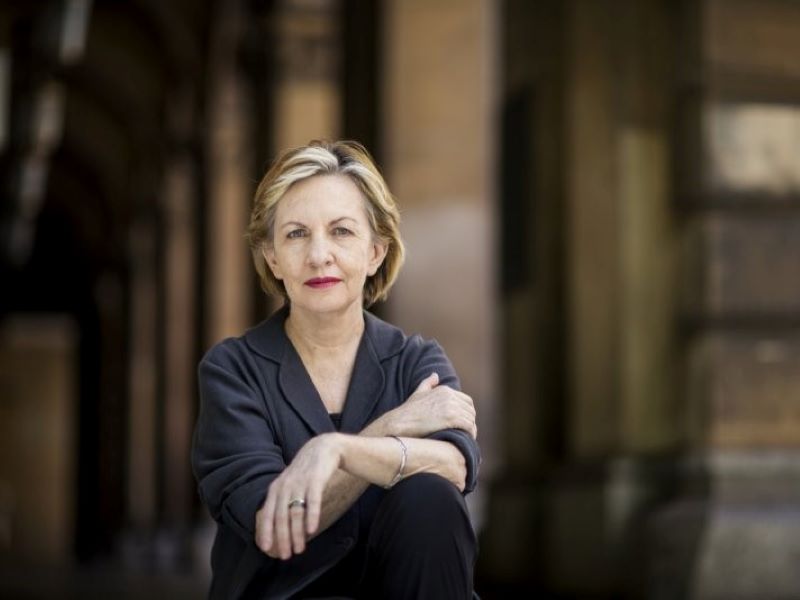Renowned scientist and engineer Professor Mary O’Kane has been appointed to lead a landmark review of Australia’s higher education system examining everything from funding and access to governance and transparency.
The review — the most significant since the Bradley Review of 2008 — is the key component of Labor’s promised Universities Accord and will “synchronise” with a dedicated review of the Australian Research Council.
The government has pledged to better represent First Nations Australians and other underrepresented in higher education groups in the process and in the reforms to follow.
An interim report on priority actions will be presented by June 2023, with a final report to be delivered by December 2023.
University groups and the tertiary staff union have welcomed the review but say it shouldn’t slow down undoing the controversial changes the Coalition made to university fees.

Professor O’Kane was the first chief scientist in New South Wales and a former Vice-Chancellor of the University of Adelaide. She will lead a panel of academics, industry and regional representatives in an extensive consultation process to deliver the recommendations.
The panel is:
- Professor Barney Glover, Vice-Chancellor of Western Sydney University
- Shemara Wikramanayake, the first female managing director and chief executive officer of Macquarie Group and a member of the former Government’s University Research Commercialisation Expert Panel
- Jenny Macklin, former Minister for Families, Community Services and Indigenous Affairs, and one of the architects of Paid Parental Leave and the NDIS
- Professor Larissa Behrendt, the first Indigenous Australian to graduate from Harvard Law School. Professor Behrendt is a professor of law and the director of research and academic programs at the Jumbunna Institute for Indigenous Education and Research at the University of Technology Sydney
- Fiona Nash, Australia’s first Regional Education Commissioner, a former senator for New South Wales, a former Minister for Regional Development, Regional Communications and Local Government and Territories. Ms Nash is now Australia’s first Regional Education Commissioner
Education minister Jason Clare on Wednesday announced the panel along with its terms of reference outlining key areas for review, including funding, access and governance.
Mr Clare will also chair a Ministerial Reference Group to assist the Accord panel. The reference group will be announced later this year and is expected to include representatives of students and staff, business and industry groups, higher education and vocational education peak bodies, Australia’s Chief Scientist Dr Cathy Foley and other experts.
According to the review’s terms of reference, the key areas to be examined are meeting skills and knowledge needs; access and opportunity; investment and affordability; governance, accountability and community; connections between higher education and vocational education and training; quality and sustainability; and new knowledge, innovation and capability.
This will include research funding and the Coalition government’s controversial ‘Job Ready Graduates Scheme’.
“I want the Accord to answer the tough questions,” Mr Clare said on Wednesday, when he delivered the Bradley Oration at the University of Sydney.
“I want new ideas. And I want to do this together. I want to build a broad consensus. An Accord.
“I want this to be a something that inspires us – and outlasts us. Lasting reform.”
The ambition was welcomed by university groups and the tertiary staff union.
“The Universities Accord presents the most significant opportunity for policy reform in higher education in Australia in decades,” Universities Australia chief executive Catriona Jackson said.
“We will come to the table with the bold thinking that significant reform demands.”
The National Tertiary Education Union said it was an opportunity to repair a near-decade of “policy vandalism”.
“Under the Coalition’s watch we saw 35,000 jobs lost in public universities, insecure work reach crisis levels and wage theft become endemic throughout the sector,” NTEU national president Dr Alison Barnes
“The Minister’s instruction for the panel to review the disastrous Jobs Ready Graduates policy is welcome. Those changes saw students slugged with higher fees on average and the slashing of public funding for teaching and research.
Dr Barnes said it would be vital that staff and students are well represented on the reference group assisting the panel.
The group representing Australia’s technology focused universities also welcomed the announcement and what it expects will be significant changes coming from a focus on access and inclusion.
“This is big ticket reform — which is very much in the Labor tradition and will be as important as the Bradley and Dawkins reviews were in their era — all of which will help build our most resilient and dynamic communities,” Australian Technology Network of Universities (ATN) chair, Professor Iain Martin said.
Research focused universities, through their peak body the Group of Eight, said the Accord is an opportunity for systemic change.
“What we need is a contest of innovative ideas to ensure we have the right policy framework so Australia can prosper in the future,” Go8 chief executive Vicki Thomson said.
“The accord provides a window to reframe Australia’s higher education sector and lift the bar. And if we miss this opportunity the repercussions will not be just to the sector, but to all of Australia.”
Ms Thompson said there are “quick fix options” that needn’t wait on the Accord, including the Job Ready Graduates scheme.
“The JRG has acted as an impediment to skills creation particularly in relation to STEM courses, such as engineering and IT, which are already experiencing critical shortages,” Ms Thomson said.
“Australia cannot afford to waste our limited resources on policies that have proven to be ineffective.”
Do you know more? Contact James Riley via Email.


Wondering why Australia’s # 1 university lacks representation ie. Melbourne University. Also a significant & recognised contributor during the COVID pandemic ie. Doherty Institute. Faculties also on global cutting edge. How does the project hold weight when the World’s Best practice in ???????? is not represented or given a voice?